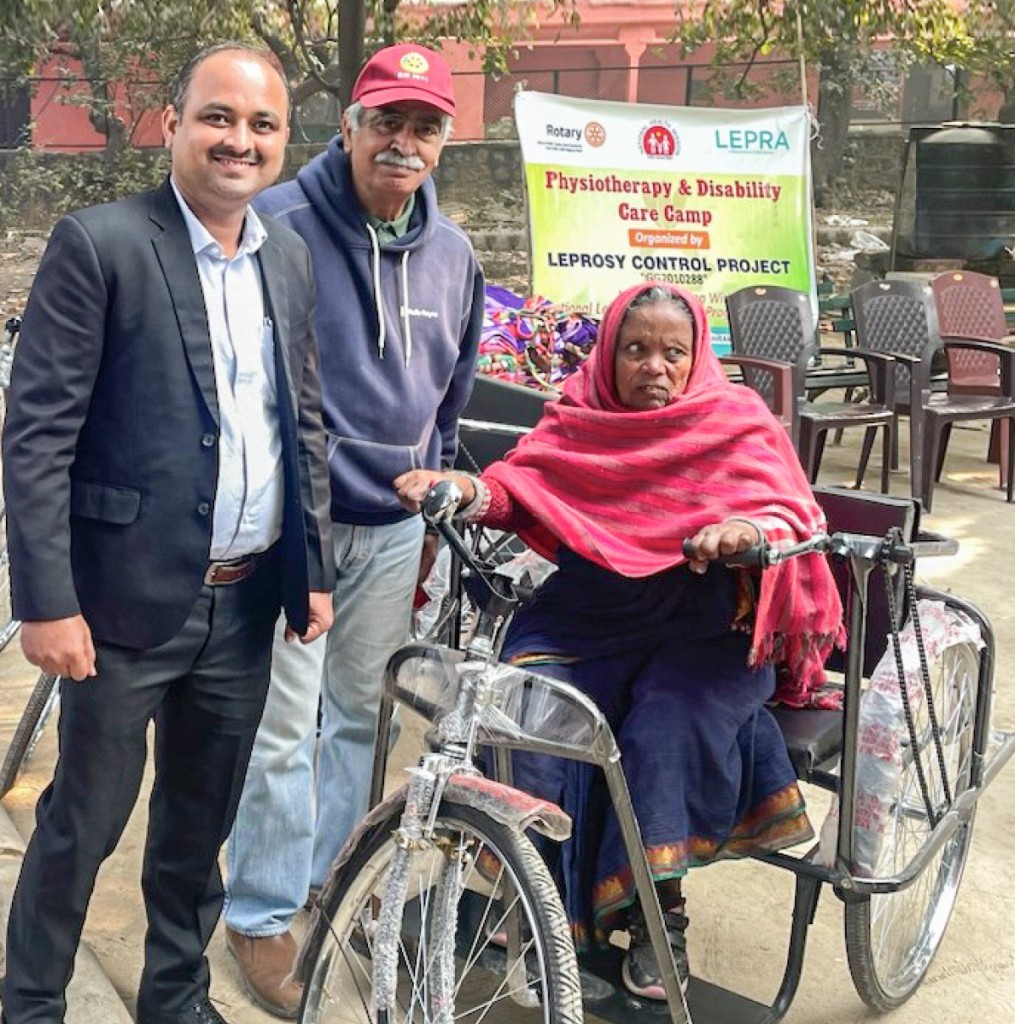For the past four years RC Delhi South, RID 3011, along with Rotary Clubs of New Delhi and Delhi South End, the Lepra Society, India chapter, corporate partners Aimil, instrument makers, and Assets Care and Reconstruction Enterprise (ACRE), has been carrying out extensive relief work across 33 of the 40 leprosy colonies in Delhi NCR through its Leprosy Control Project. “We owe it all to our club member PDG and INPPC chair Deepak Kapur,” says Pradeep Bahri, past president of RCDS.

When Kapur, on a vacation to the UK in June 2019, met Nayen Patel of RC London, the latter spoke about his involvement with Lepra (Leprosy Relief Association)-UK, and introduced the visitor to its CEO. “Until three years ago we believed that leprosy was a disease of the past and had no idea of its prevalence and spread. So it came as a shock to us when Kapur returned and told us these details. The highlight of it was the WHO’s report that 60 per cent of the global new leprosy cases are in India, while we were under the impression that India had eliminated leprosy as a public health problem in 2005,” explains Bahri, who was then RCDS president. Immediately the club tailored its service projects to address the disease and formed the Rotary Club Alliance for Leprosy Control in October 2019, with Bahri as its CEO and PDG Kapur as its chairman.
The Alliance developed a four-pillar strategy that focused on creating awareness, training medical professionals, identifying patients, and providing healthcare to control leprosy. Though it is completely curable, leprosy remains one of the most misunderstood and underreported diseases, mainly because of lack of awareness about the disease, its treatment and management. This project aims to dispel the social stigma surrounding leprosy, improve medical care and the quality of life for patients, says RCDS president Lalit Sawhney.

Adds Bahri: “Leprosy patients today are not just battling with diagnosis and treatment, but they are also fighting for their right to dignified living. Most of them suffer in isolation as outcastes in around 750 leprosy colonies in India. Delhi has 40 such colonies.”
With support from GoI’s National Leprosy Eradication Programme, the Alliance has trained medical professionals to detect the disease, and provide physiotherapy, dressing of patients’ sores and offer palliative care. A mobile ulcer management clinic was commissioned for these services and to distribute specially designed shoes and self-aid kits. “We visit public places and residential colonies to spread the message. We have even uploaded a jingle related to leprosy which is being played in garbage collection vans that visit streets to collect door-to-door garbage,” he says. Tricycles and wheelchairs were distributed to more than 130 patients in various colonies.
The Alliance received a ₹78 lakh global grant, with RC Stratford London as its international partner, to provide medical care for patients in these colonies. A Leprosy Control Foundation was also formed to gather funds for the programme.

“During Covid, we distributed 400 food packets daily for two months in two colonies, in partnership with a Rotary club in Bengaluru,” says Sawhney. Battery-operated solar power plants were installed in two colonies. More recently, an on-grid solar power plant costing ₹15 lakh was installed at the Mother Teresa Home located at a leprosy colony in Tahirpur, near Faridabad, with CSR funding from ACRE. “It will help the institutions to significantly save on electricity costs,” he adds.
Following the success of this project, an NGO, The Leprosy Mission India has sought help to provide vocational training and sponsor reconstructive surgery in its Leprosy Care Hospital in Tahirpur. “Our corporate partner Aimil is ready to support this,” says Bahri.
A Rotary-Lepra Referral Centre will soon be set up at the Delhi government’s Indira Gandhi Hospital. “With CSR grant from Aimil we have bought equipment to be installed in this centre to provide physiotherapy, ulcer management and reconstructive surgery,” he adds. The Alliance is all set to conduct screening camps for 18 lakh government schoolchildren in the capital.
The Leprosy Control Project is a 14-year programme to be carried out in phases. “With the successful implementation of the pilot begun in Delhi NCR, the model will gradually be expanded to other parts of India, making it effective and sustainable,” says its CEO.





